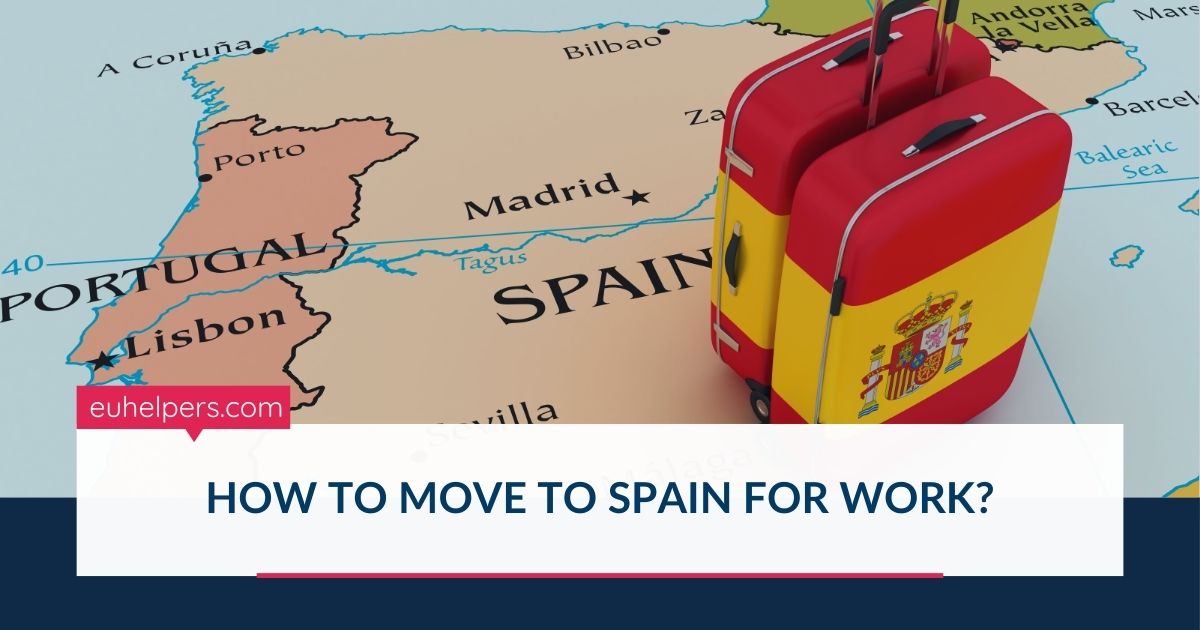
Spain is an attractive destination for professionals seeking employment abroad, offering a vibrant lifestyle, rich culture, and growing job market in various sectors. However, for non-EU/EEA citizens, moving to Spain for work involves several legal and administrative steps, including securing a job offer, obtaining a work permit, and applying for the appropriate visa. Here’s a detailed guide to help navigate the process:
1. Securing a Job Offer and Employer Sponsorship
Find Employment First
Before initiating the visa process, non-EU/EEA citizens must first secure a formal job offer from a Spanish employer. Without this offer, it is not possible to apply for a standard work visa.
Employer Applies for a Work Permit
Once an offer is extended, the employer in Spain is responsible for applying for a work permit on behalf of the prospective employee. This application is submitted to Spanish immigration authorities and is a prerequisite for obtaining a work visa.
Labor Market Requirements
In some cases, the employer must prove that they were unable to find a suitable candidate from within Spain or the EU. This step is designed to prioritize local talent unless the role is listed on Spain’s Shortage Occupation List.
2. Applying for the Work Visa
Gather the Required Documents
To apply for a work visa, the following documents are generally required:
-
Valid passport
-
Copy of the approved work permit
-
Signed employment contract
-
Passport-sized photos
-
Proof of qualifications (e.g., diplomas, certificates)
-
Background check or police clearance
-
Medical certificate
-
Proof of accommodation in Spain
Submit the Application
Visa applications must be submitted at the Spanish embassy or consulate in the applicant’s country of residence. Processing times may vary, so applying well in advance is recommended.
3. Obtaining Residency in Spain
Get an NIE (Foreigner Identity Number)
After arrival in Spain, the next step is to obtain an NIE, a unique identification number required for any legal, financial, or professional activity in Spain.
Register as a Resident
New arrivals must also register with the local town hall (ayuntamiento) where they will be living. This is part of the empadronamiento process, which is essential for accessing public services.
Apply for a TIE (Foreigner Identity Card)
Once registered, you will receive a TIE, which serves as your residence permit and proves your legal status in Spain.
4. Additional Considerations
EU/EEA Citizens
Citizens of EU/EEA countries do not need a work visa to live and work in Spain, but they must still register with local authorities and obtain a NIE.
Freelancers and Self-Employed Workers
Those wishing to work as freelancers (autónomos) in Spain must register as self-employed and follow specific visa procedures for entrepreneurs or independent workers.
Language Skills
While many international companies operate in English, having a working knowledge of Spanish is a significant advantage for both job hunting and daily life integration.
Cost of Living
The cost of living in Spain can vary significantly by region. Major cities like Madrid and Barcelona tend to be more expensive, while smaller cities and rural areas offer more affordable options.
Health Insurance
Proof of adequate health insurance coverage is essential, especially during the visa application phase and upon arrival in Spain.
Relocating to Spain for work as a non-EU/EEA citizen requires planning, legal paperwork, and often patience. However, with a job offer in hand and proper guidance, the process is entirely manageable. Whether you're entering Spain as a skilled professional or freelancer, understanding the legal requirements and integrating into Spanish life will set the foundation for a successful and fulfilling experience.
